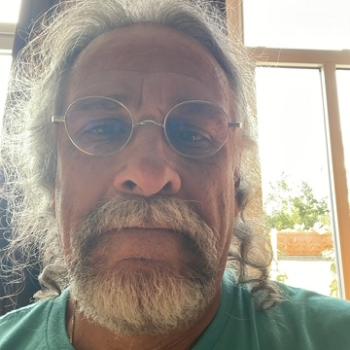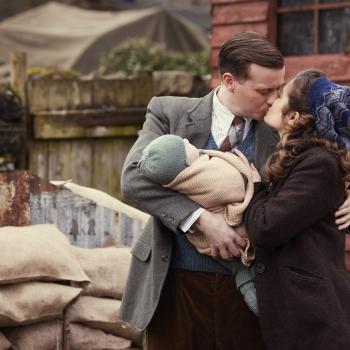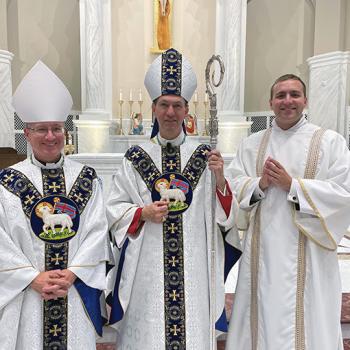By Rabbi Azriel C. Fellner - May 12 2009
Early in my rabbinic career, I was confronted by a member of my congregation who revealed that he was homosexual. Until then, I had never had to wrestle with the idea of homosexuality. My Yeshiva education followed by the Seminary allowed me the privilege of thinking about homosexuality as an abstraction. The Biblical injunction against two men or women (according to the rabbis) having sex played around the edges of my mind as mere fantasy. (Leviticus 18:22)
But now, in my office, this man, married with children, transformed that fantasy into something more. His struggle to maintain a conventional life was straining against his desire to be open about his longing for other men. His secret liaisons were becoming a burden. Even his love for his wife and children could not dispel the power of his inner yearning, his desire to be free about his sexual identity.
Shortly afterward, young men, children of my congregants, or friends of those young men chose to speak with me about their sexual identity. With very few exceptions, these men were torn apart by conflict. If they could, they would have preferred to be "normal." But there was something deep within their characters that demanded a sexual expression that they knew was condemned both by society at large and by Biblical injunctions. It was as though they had been created by a different God for a different world and somehow found themselves stranded here as aliens.
Much has changed since those early days of my rabbinic career. Society has become far more accepting of gays and lesbians. Movies, the theater, novels and television programs regularly portray homosexual men and women. Recently, several states have legalized gay and lesbian marriage. The movement towards full acceptance is rising, and while there is still opposition to gay marriage, civil unions are becoming an accepted standard.
However, as a rabbi, I am still challenged by an ancient and sacred text that allows no room for homosexual behavior, let alone same sex marriage. And while I have read and studied with great interest many of the ingenious, often virtuosic explanations crafted by contemporary scholars which try to attenuate the Biblical condemnation of homosexual behavior, I am far from convinced by those arguments. The Biblical injunctions still stand as a cold steel: implacable, impenetrable and impervious.
As a former practicing rabbi involved in the daily traffic of my congregants' lives from birth to death, their search for understanding made me aware that there were elements in contemporary life that neither Sacred Scripture nor rabbinic law covered. Contrary to the notion with which I had been brought up that everything was in the Torah if you studied it long enough or hard enough, there were some human issues that were not in the Torah and not imagined even by the most imaginative of rabbis. Homosexuality, and the strong possibility that being gay or lesbian is an innate trait incapable of being "fixed" or "corrected" was one of those areas. I concluded that Torah has a blind spot; that issues of sexual identity simply were not in the Torah's line of vision.
I have always believed that the Torah was and is a continuing dialogue between God and human beings, that the Torah was not finished at Sinai, fully comprehended by Moses, and then revealed to Israel for all time, but that even Sacred Scripture is open not just to rabbinic commentary, but to modification as well. I could no more justify the Torah's decree that homosexuality is an abomination than I could accept that God commanded the ancient Israelites to perform acts of genocide and ethnic cleansing. (Deuteronomy 7:1-2; 20:16)
Somewhere in the transmission of my Sacred Scripture from the Divine to the human, error entered into the text. Instead of trying to explain away those blind spots, I feel that we need to acknowledge them. Instead of diminishing the power of the Torah, by accepting those blind spots, we actually enhance its meaning for us as we struggle to understand our lives and give meaning to our existence.
Same sex marriage and civil unions between gays and lesbians needs codification and new laws that add dignity and command respect for all human beings who seek love and wholeness.
Instead of turning a scriptural verse upside down to make it say what it doesn't say, we should acknowledge that it simply does not speak to us in a vocabulary that has changed dramatically since Biblical times.
Rabbi Azriel Fellner was ordained at the Jewish Theological Seminary of America in 1967. His first job was as Chaplain in the United States Air Force in Alaska, where he was responsible for both Jewish military personnel as well as the civilian Jewish population in the state. Having been a pulpit rabbi for 38 years, Rabbi Fellner now lectures on film and has been a scholar in residence throughout the country, as well as Canada.
Rabbi Fellner lives in Livingston, New Jersey with his wife Judy, who is the author of In The Jewish Tradition. His daughter, Michelle, works in post production in the television industry in Los Angeles.
1/1/2000 5:00:00 AM




